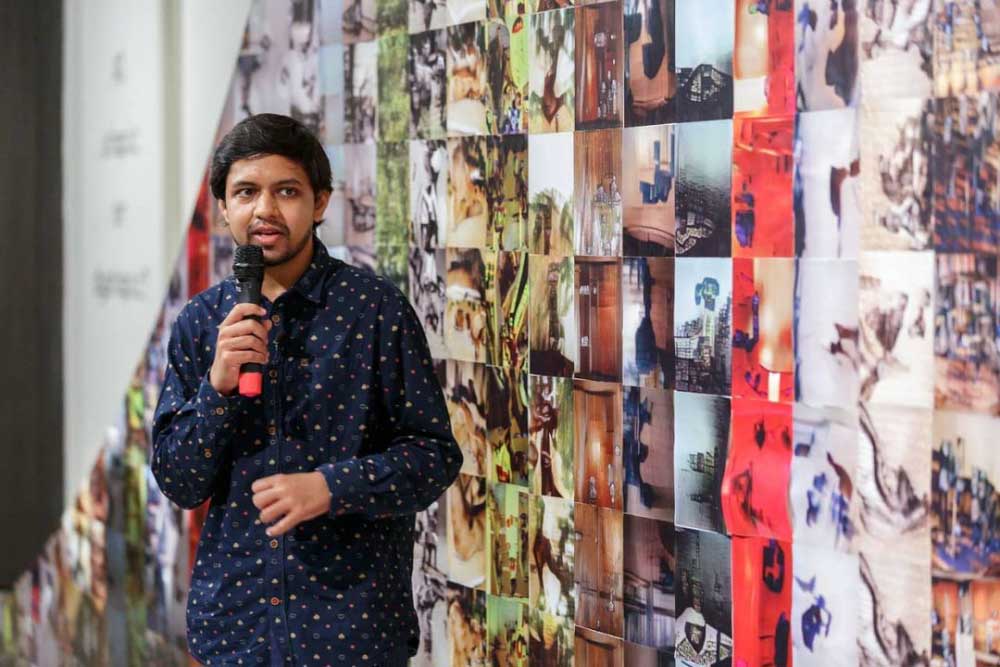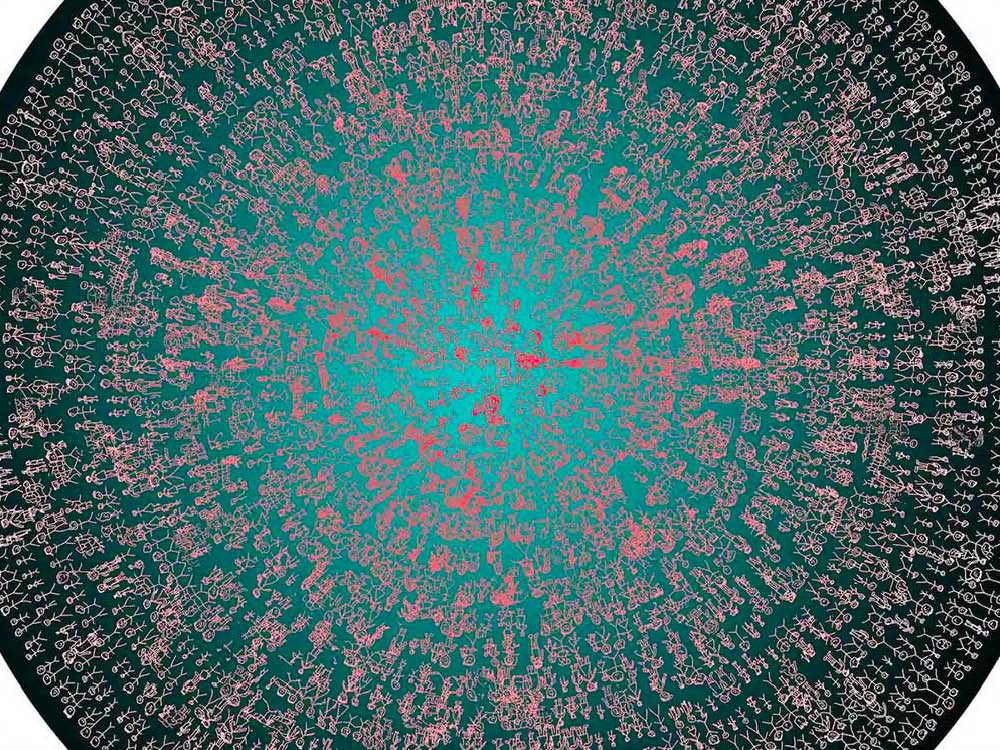India’s first-ever solo artificial intelligence (AI) Art Show, titled EXO-stential – AI Musings on the Posthuman is being hosted at Emami Art, an Art gallery in Kolkata. The exhibition features the works of artist Harshit Agarwal and aims to explore how AI can shape artistic prospects. Agarwal has worked with AI Art since 2015 and has been nominated twice for the Lumen Prize, which is a coveted honour in tech art.

Image Source: Instagram/emami_art
The exhibition includes “masked Reality”, an interactive installation that allows the viewer to see their facial expressions transform into those of a (female) Kathakali performer as well as with that of a (male) Theyyam ritual participant simultaneously. The installation involved Agarwal working on two different AI algorithms, the first that breaks down the structure of any video image of a face and the second that adds the appropriate face paint to the facial structure to transform it into the face of a Kathakali performer or a Theyyam medium.
Other exhibits of the show include Strange Genders, a piece by 64/1 and Harshit Agrawal, which involved putting together drawings of 1000 people, where they drew a draw a standing ‘woman’ and a standing ‘man’ separately. AI was then used to create a poster inspired by the S. Indian Saiva Siddhanta concept of the Bindu (the female material origin of the universe), as well as a set of three books that catalogue both the human binary conception of gender and the machine’s reconstruction of a gender spectrum based on the drawings.

Image Source: Lifestyle.livemint.com
In another piece that’s a part of the exhibition, Agarwal said in a statement, “In another work, Author (Rise), the viewers start writing physically on a piece of paper, and the AI takes control of the pen to write its own thoughts in continuation of theirs. You end up being a mechanical arm for the machine.”
On display until September 30, the exhibition has been organised in collaboration with 64/1, a Bengaluru-based technology research and curation collective. In addition, it has been curated by Myna Mukherjee from Engendered, a Scotland-based human rights and transnational arts organisation.